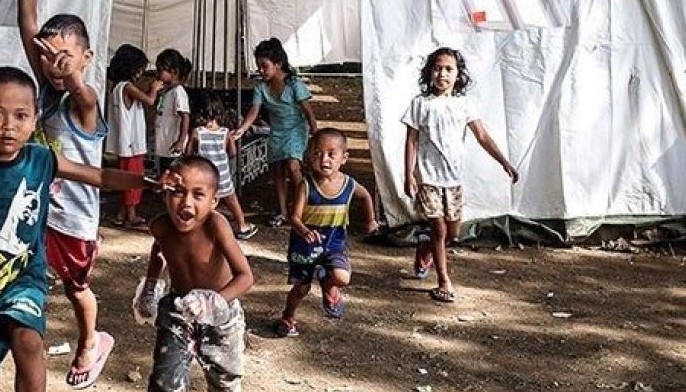MANILA, Philippines — The proposal to lower the minimum age of criminal responsibility will not put minors in jail but snatch them from the clutches of syndicates that prey on children, Senate President Vicente Sotto III said yesterday.
In his co-sponsorship speech on the bill that seeks to bring the minimum age of criminal responsibility down to 12 years, Sotto criticized the apparent disinformation he described as something that is “designed to mislead the public in order to tend toward the retention of the present 15 years of age.”
“Lowering the threshold to 12 years of age simply means that the government and the state can intervene in conflict situations involving its young citizens with the end view of providing them guidance and a chance at reformation,” he stressed.
Sotto said the bill was pro-poor as children in poor families do not have access to quality education and are being exposed to violence in their own family and communities and that the government, through the principle of parens patriae, is stepping in to provide them with education and training.
If some parents, he added, will fail to attend to the needs of their children, then the government, in implementing the law, would be able to intercede and rehabilitate the youth in an effort to provide them a better future and mold them into responsible members of society.
“We need to snatch our young with force from the snare of criminal syndicates. We need to seize them from entrapment in the dens of felony and transgression. We need to grab them from the arms of lawlessness and delinquency,” Sotto argued. “Only if we are able to reclaim, seize and grab them now from the paws of gangs and syndicates can we ever hope to rehabilitate our young offenders and prevent them from falling into the abyss of crime.”
Sen. Richard Gordon, sponsor of the bill, said the measure also seeks to deploy more truant officers or social welfare workers to check on children, especially those from poor families, who have been missing school for certain number of days.
Gordon stressed that while protecting and raising children is the primary responsibility of parents, all sectors of society must help in that regard.
Meanwhile, several child welfare groups allied under the Child Rights Network (CRN) staged yesterday a rally at the Senate to lobby for the bill’s disapproval.
“Lowering the (minimum age of criminal responsibility) runs counter to international obligations and standards. We would like our senators to review the United Nations Convention on the Rights of the Child – to which the Philippines is party to – particularly its Article 37, which essentially states that detention of children should be a last resort,” said CRN, reputedly the largest alliance of organizations and agencies pushing for children’s rights legislation in the country with a membership of 46 organizations.
It also said that the government should go after syndicates and big-time criminals instead of running after children who are “victims of circumstance if and when they get involved in crimes.”
Another group, the Salinlahi Alliance for Children’s Concern, called for stronger implementation of the Juvenile Justice and Welfare Act instead of lowering the age of criminal responsibility.
“If the government really wants to eliminate crimes, it should target the big syndicates,” said Eule Rico Bonganay, the group’s secretary general. – With Rainier Allan Ronda, Helen Flores


